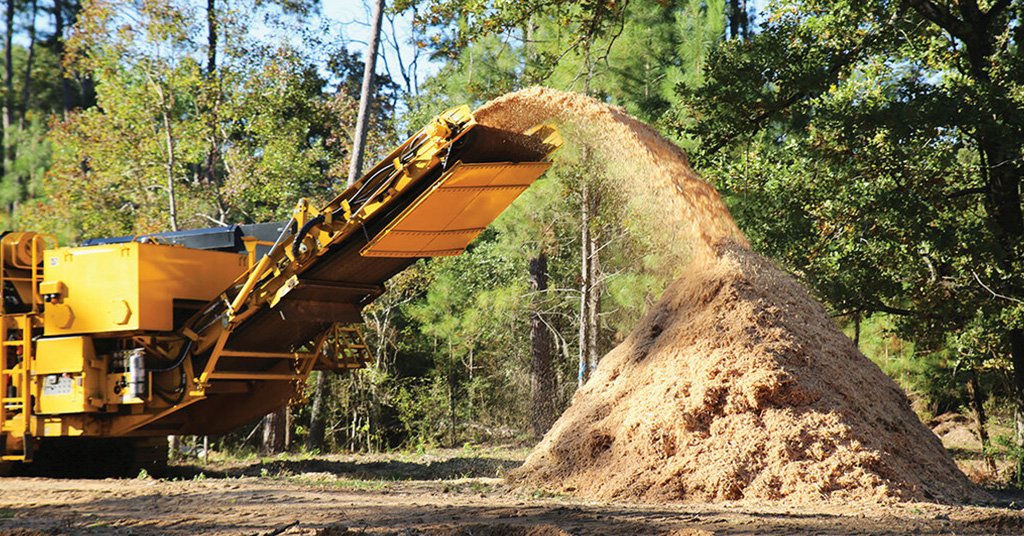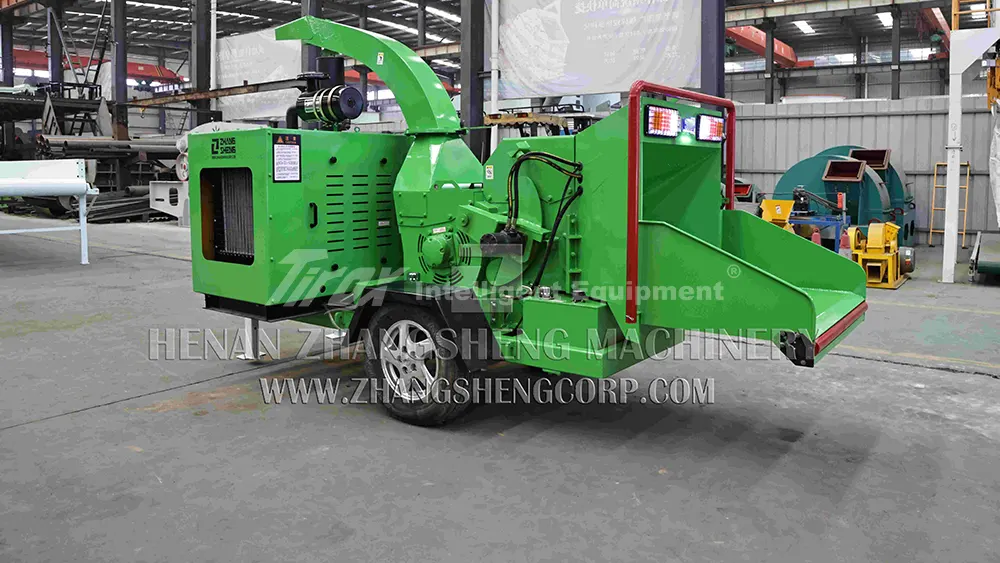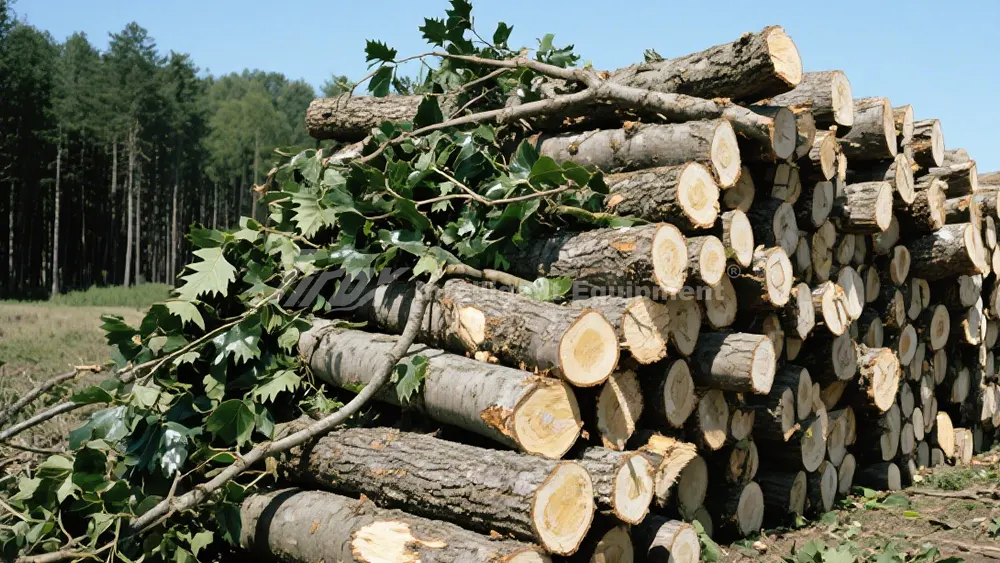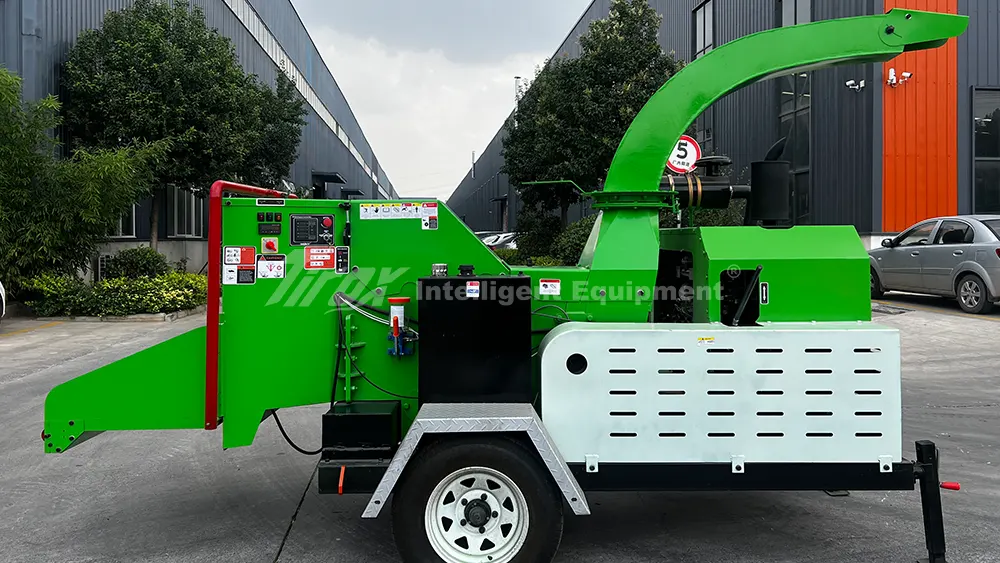You’re looking at a pile of branches and wondering how to get rid of them efficiently. The sheer volume can be overwhelming, and traditional disposal methods often feel like a waste.
Using a wood chipper is essential for efficiently reducing wood waste volume, creating valuable reusable materials like mulch or biomass fuel, enhancing operational productivity, and ultimately saving significant time and disposal costs.
In my 22 years of experience manufacturing wood processing equipment at TIROX, I have seen countless businesses and individuals transform their approach to wood waste. What might seem like a simple machine is actually a cornerstone of modern waste management and resource recovery.
What is the point of a wood chipper?
You’ve got a growing stack of woody debris, and simply getting rid of it feels like a chore. You might be asking, what’s the real advantage of using a dedicated machine for this?
The main point of a wood chipper is to efficiently reduce the volume of wood waste, turning large, awkward branches and limbs into small, manageable wood chips that can be easily disposed of or, even better, repurposed for various beneficial uses.
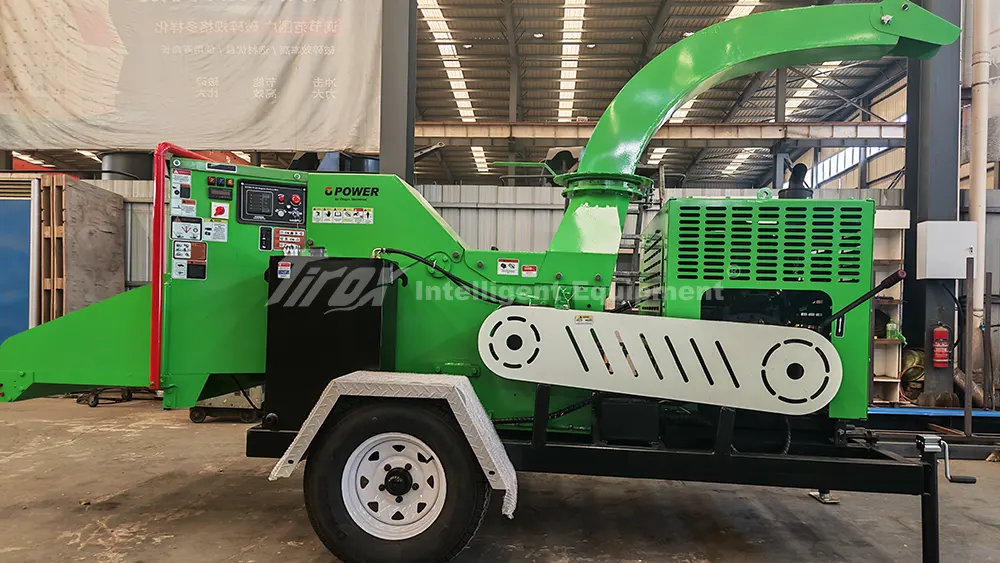
From my perspective, working with these machines every day, the transformation a wood chipper enables is pretty amazing. You feed in a large, awkward branch, and out comes a stream of neat little chips. This volume reduction is a huge benefit. Think about trying to load a truck with whole branches versus loading it with chips – you can fit so much more material in chip form. This saves time and trips if you’re hauling waste away. For our B2B customers in forestry, our tracked chippers and grinders let them process wood right where it’s cut, even in rough forest terrain. It directly impacts their efficiency and profitability.
Volume Reduction and Ease of Handling
Wood chippers dramatically shrink the size of wood waste. A large, unwieldy branch can be turned into a small pile of chips. This makes the material much easier to handle, transport, and store. Chips are light and flow well, so they are simple to bag, wheelbarrow, or even blow directly into a truck. This efficiency means less time spent wrestling with bulky debris and more time for other tasks.
Creating Useful Material
Beyond just making things smaller, a wood chipper turns waste into valuable products. The chips produced can be used as mulch for gardens, providing benefits like moisture retention and weed suppression. They also serve as an excellent carbon-rich material for composting. For larger operations, wood chips are essential for biomass energy production, as they can be processed into wood pellets or used directly as fuel. This ability to repurpose waste is a core point of using a wood chipper.
Site Efficiency
Instead of hauling unprocessed wood waste from remote locations or large properties, a wood chipper allows you to process material directly on-site [13]. This on-site processing eliminates the need for numerous trips to a disposal facility, saving on fuel costs, transportation labor, and disposal fees [13][16]. For businesses like landscaping services or large farms, this capability directly enhances their operational flow and reduces overhead [16].
Is it worth getting a wood chipper?
You’ve seen what a wood chipper can do, but you’re probably weighing the cost against the benefits. Is it really a worthwhile investment for your specific needs, or is it an unnecessary expense?
Getting a wood chipper is often a very worthwhile investment because it significantly reduces disposal costs, saves valuable time, creates useful products, and enhances overall operational efficiency, especially for those who regularly generate substantial wood waste.
Over my years in the industry, I’ve talked to countless customers about this decision. For someone with a small suburban yard who only trims a few bushes once a year, owning a chipper probably doesn’t make financial sense. Renting one for a day or hiring a tree service that chips on-site would be more economical for them. However, if you have a large property with many trees, or if you’re constantly clearing brush, a chipper can be a game-changer. I recall a customer who owned a small orchard. He was spending a lot on hauling away pruned branches each year. After buying one of our smaller wood chippers, he not only saved on disposal costs but also started mulching all his trees with the chips. He told me the chipper paid for itself in two seasons just from the hauling costs saved. He also liked having mulch whenever he needed it. This shows the clear financial and practical benefits that make it worth it.
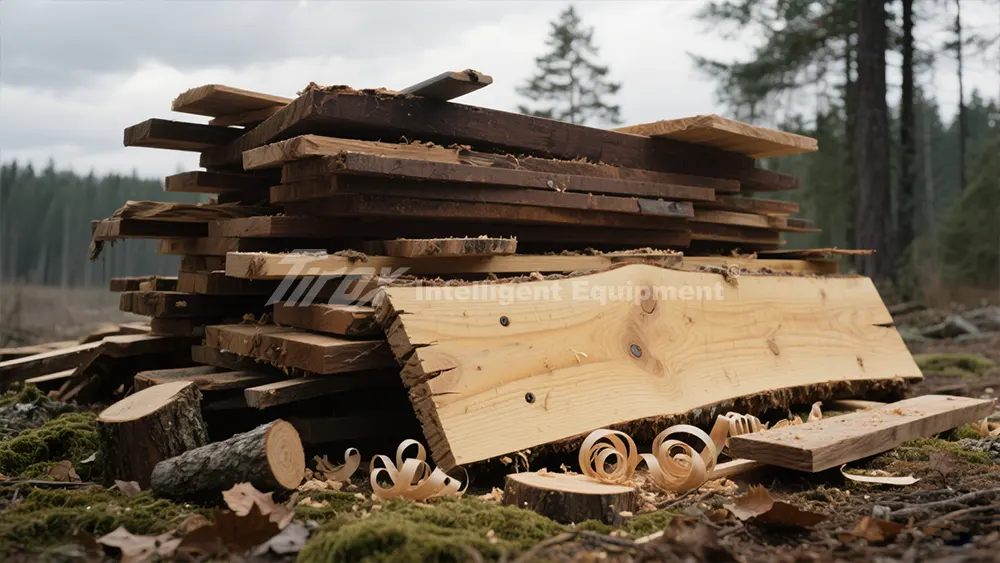
Cost Savings
The most direct benefit often comes from reducing or eliminating disposal and transportation costs. Instead of paying fees to haul away bulky wood waste or sending it to a landfill, you can process it yourself and potentially use or sell the resulting chips. The volume reduction alone means fewer trips and lower fuel consumption.
Time and Labor Efficiency
Manually cutting and hauling woody debris is incredibly time-consuming and labor-intensive. A wood chipper automates and speeds up this process tremendously. This frees up your workforce for other tasks, increasing overall productivity. This efficiency can translate directly into significant savings in labor costs over time.
Resource Creation and Revenue Potential
A wood chipper transforms what was once considered waste into a valuable resource. These chips can be used on-site as mulch or compost, reducing your need to purchase these materials. For businesses, chips can be sold as biomass fuel, landscaping mulch, or even animal bedding, creating new revenue streams. This ability to monetize waste adds a significant financial incentive to the investment.
Environmental Benefits
Using a wood chipper helps the environment. By processing wood waste on-site and repurposing it, you reduce the amount of material sent to landfills, which helps to lessen pollution and promote sustainable practices. The use of wood chips as biomass fuel also offers a greener alternative to traditional fossil fuels. You can learn more about this by reading our article: Trash to Treasure: The Many Uses of Wood Chippers.
What are the benefits of using wood chippers?
You’re considering adding a wood chipper to your operations, but you want a clear understanding of the full range of advantages it offers. What are the tangible benefits that make these machines so valuable?
The benefits of using wood chippers include significant waste volume reduction, creation of valuable repurposed materials, enhanced operational efficiency, substantial cost savings on disposal and transport, and positive environmental impact through sustainable waste management.
Through my work at TIROX, I’ve seen how diverse our customers’ needs are—from large forestry companies to small landscaping businesses and even waste management centers. The benefits of wood chippers apply across all these sectors, proving their universal value in wood waste management. Our machines are built to handle various materials and demands, providing specific benefits depending on the model chosen, whether it’s a mobile wood chipper or an industrial horizontal grinder.
Sustainable Waste Management
Wood chippers promote a circular economy by turning wood waste into usable products. Instead of burning wood waste or sending it to landfills, chipping allows for its transformation into mulch, compost, or biomass fuel. This reduces deforestation impacts, minimizes landfill burden, and decreases pollution from burning. It aligns perfectly with modern sustainability goals.
Enhanced Productivity and Safety
Efficient processing of wood waste directly increases productivity. Large, awkward branches can be dangerous to handle and transport. Chipping them down stream-lines this process, making it safer and faster. Our wood chippers often feature intelligent feed systems that monitor the load and adjust feeding to prevent blockages, ensuring smoother and safer operation. This minimizes downtime and enhances workplace safety.
Soil Health Improvement
For agricultural and landscaping applications, wood chips are invaluable for improving soil health. When used as mulch, they help retain soil moisture, suppress weed growth, and regulate soil temperature. As they decompose, they add organic matter and nutrients back into the soil, enhancing its structure and fertility. This natural soil amendment reduces the need for chemical fertilizers and herbicides.
Versatile Resource Creation
Wood chippers create a versatile product. These chips are widely used as animal bedding, providing comfort and absorbency in agricultural settings. They are also a critical raw material in various industries, including the paper industry, where consistent chip size is crucial for quality pulp production. Additionally, they are used in the manufacturing of engineered wood products like particleboard and plywood, extending the life cycle of wood resources. You can explore the various applications and benefits of wood chippers on resources like Wikipedia’s entry on the wood chipper.
Conclusion
Using a wood chipper is highly beneficial due to its ability to dramatically reduce waste volume, create valuable materials, enhance operational efficiency, reduce costs, and contribute to environmental sustainability.


